
Recent news
Researchers’ Night at Tartu Observatory (link) / 27.09.2024
On September 27, 2024, Tartu Observatory participated in the activities of the all-European Researchers’ Night. The big telescope, Stellaarium, meteorological station, and the “Space Bunker” were opened for the public. Workshops and entertainments for children were arranged. In the main hall of the observatory several popular-scientific lectures were given, among them “The Zoo of Exoplanets” by Ph.D. student Alexandra Lehtmets. Altogether, about 250 people attended the event.
The event was live-streamed on YouTube and can be rewatched here. Alexandra Lehtmets’s lecture starts at about 1:33:30. The lecture is in Estonian.
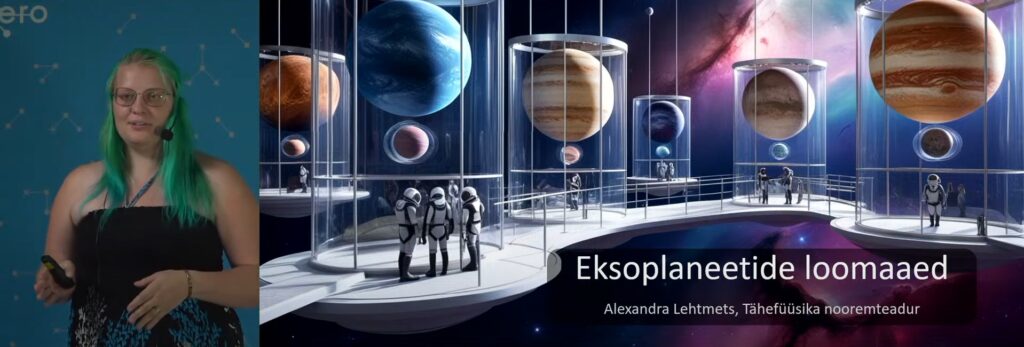
Summer School “Planet Formation and Populations” at Tartu Observatory (link) / 16-20.09.2024
On September 16–20, 2024, Tartu Observatory hosted a summer school focused on two connected topics: planet formation and evolution and planetary system populations. More than ten leading scientists in their field gave lectures on both theoretical and observational side of the topics. The Summer School had 32 participants, including mostly Ph.D. and M.Sc. students from Europe, but also from USA, India, were enjoying excellent lectures, a copious social programme, and last but not least, a superb late-summer weather.
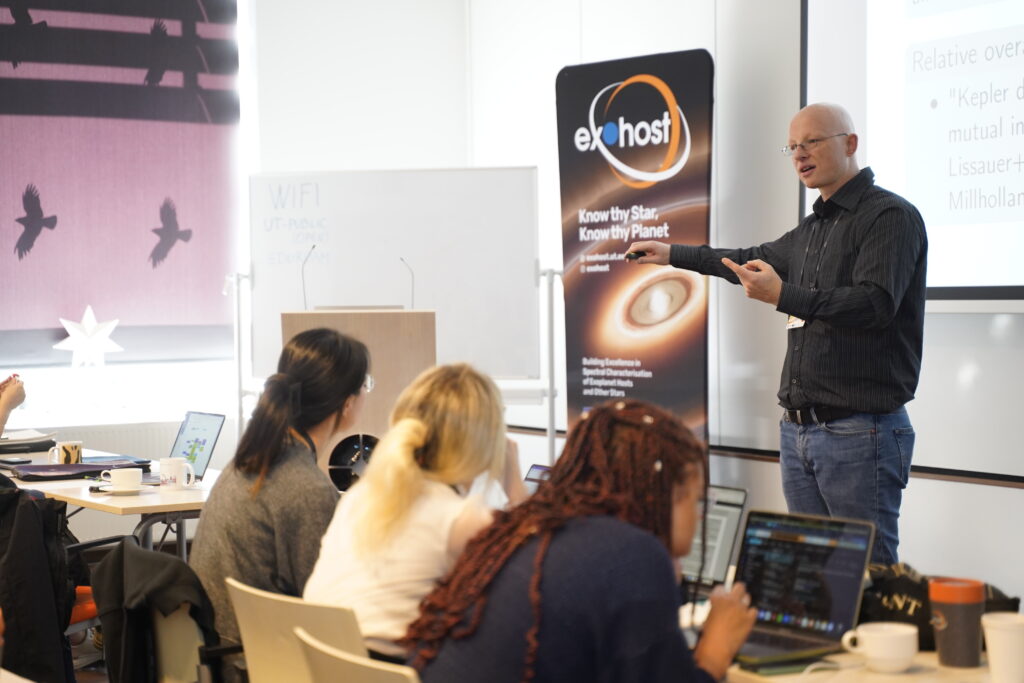
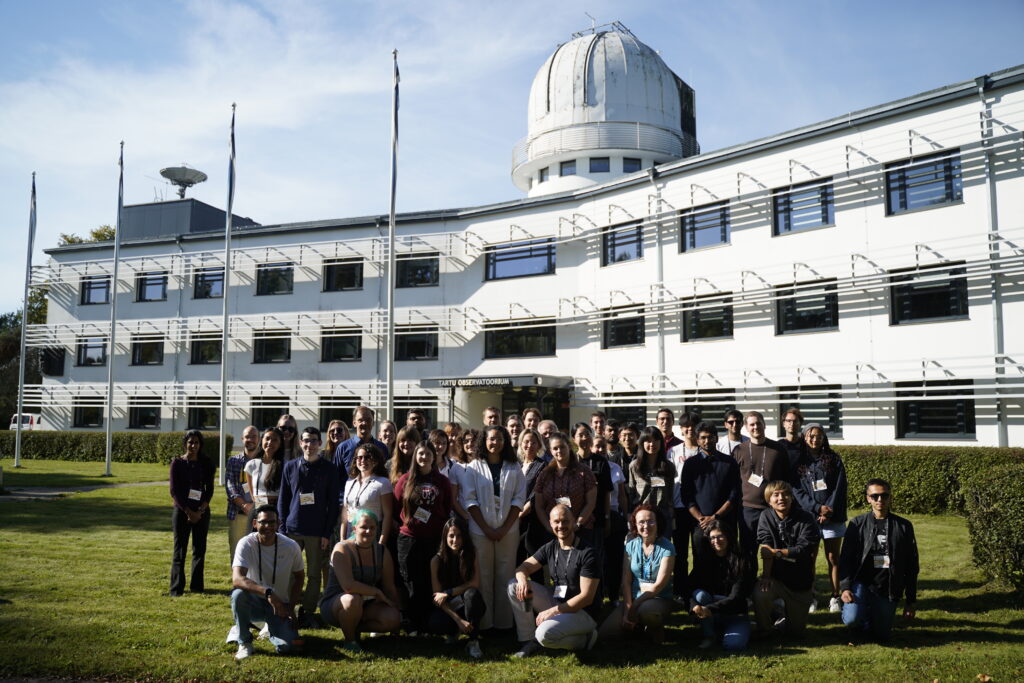
Photos by Karin Pai
Instrumentation and Spectral Surveys Workshops at Uppsala University (link) / 12.-14.03.2024
Uppsala University hosted the instrumentation and spectral surveys workshop, where the students could learn from experts about modern tools for stellar spectroscopy and gain skills in writing observing time proposals for world’s biggest telescopes.
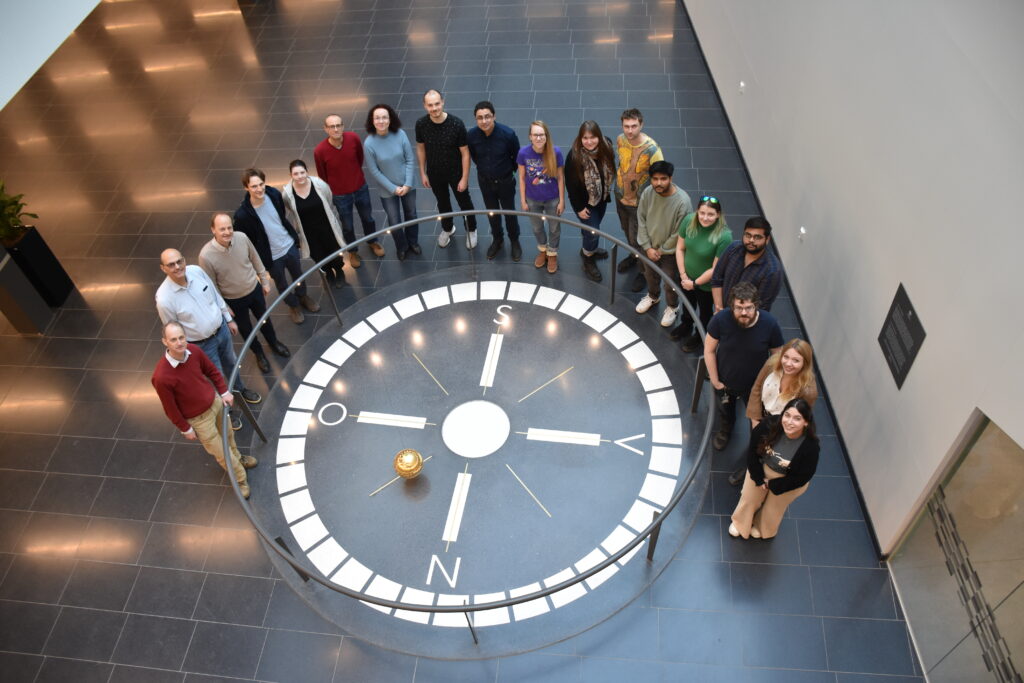
Stellar Spectroscopy Workshop at Tartu Observatory (link) / 27.-28.09.2023
Spectroscopy is one of the most important observational techniques available to us for studying the vast majority of celestial objects. The workshop had many interesting lectures by lecturers from Austrian Academy of Sciences, Uppsala University & University of Tartu and over 80 participants took part from all over the world (online and on-site). The participants obtained practical information on methods and codes that can be directly applied for the analysis of stellar spectra and a significant amount of time was devoted to hands-on sessions for learning the basic usage of some of the tools available. The workshop was financed by the EU Horizon Europe Twinning project EXOHOST and UK Research and Innovation.
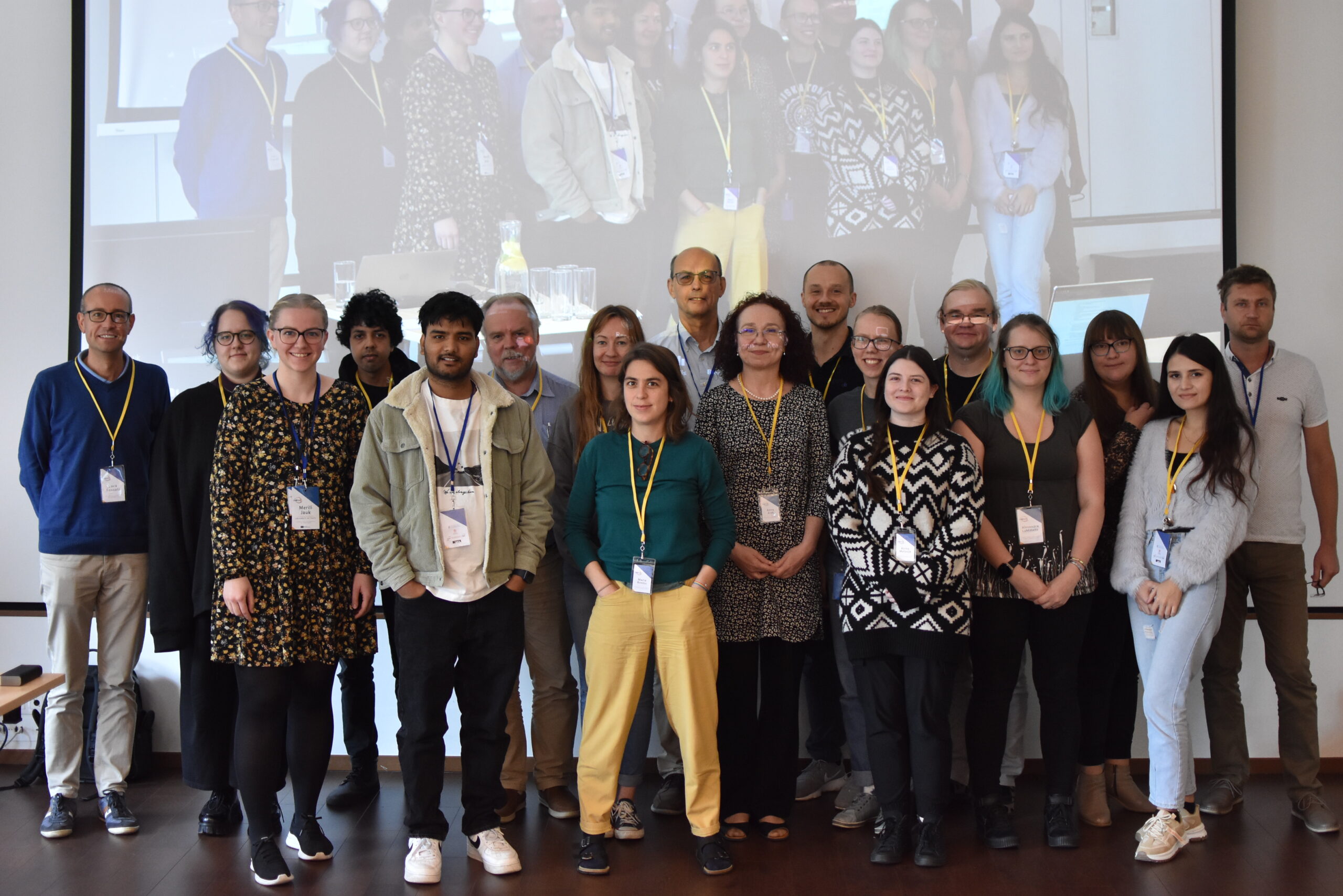
Photo by Karin Pai
Research management workshop at the Austrian Academy of Sciences (link) / 18.-19.09.2023
Austrian Academy of Sciences (OeAW) Grant Service hosted the research managers of Tartu Observatory in Vienna. Researchers at the OeAW have been able to bring numerous grants to Austria since the awards began in 2007. Regarding European funding awards, the OeAW is one of Austria’s most successful research institutions, with, for example, 75 ERC grants. Research managers are supporting researchers with administrative tasks, allowing researchers to focus on what they do best – conducting scientific research. Thanks to HE Twinning project EXOHOST and the collaboration, Tartu Observatory has now a wider view of the research management practices in Austria, UK and Sweden.
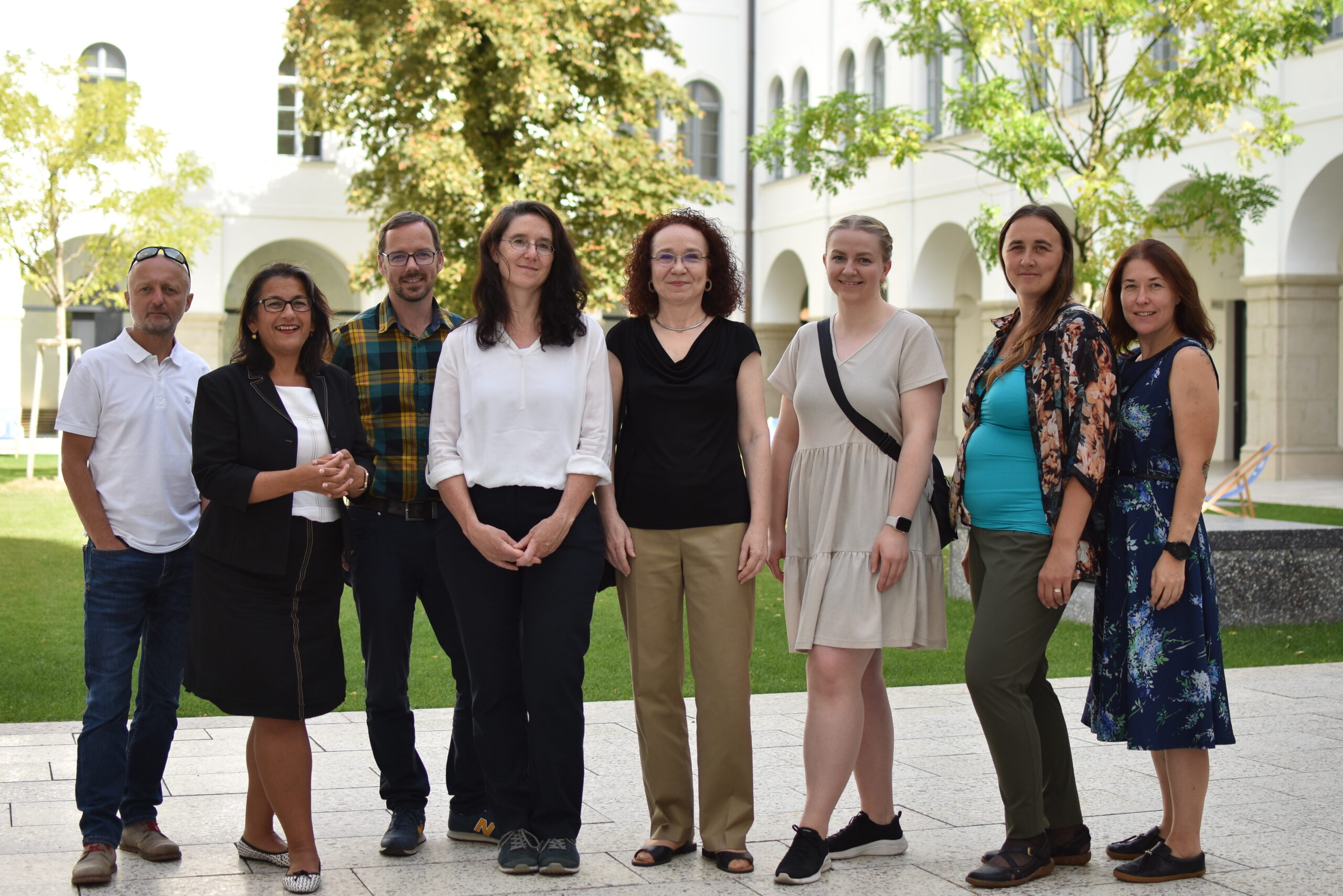
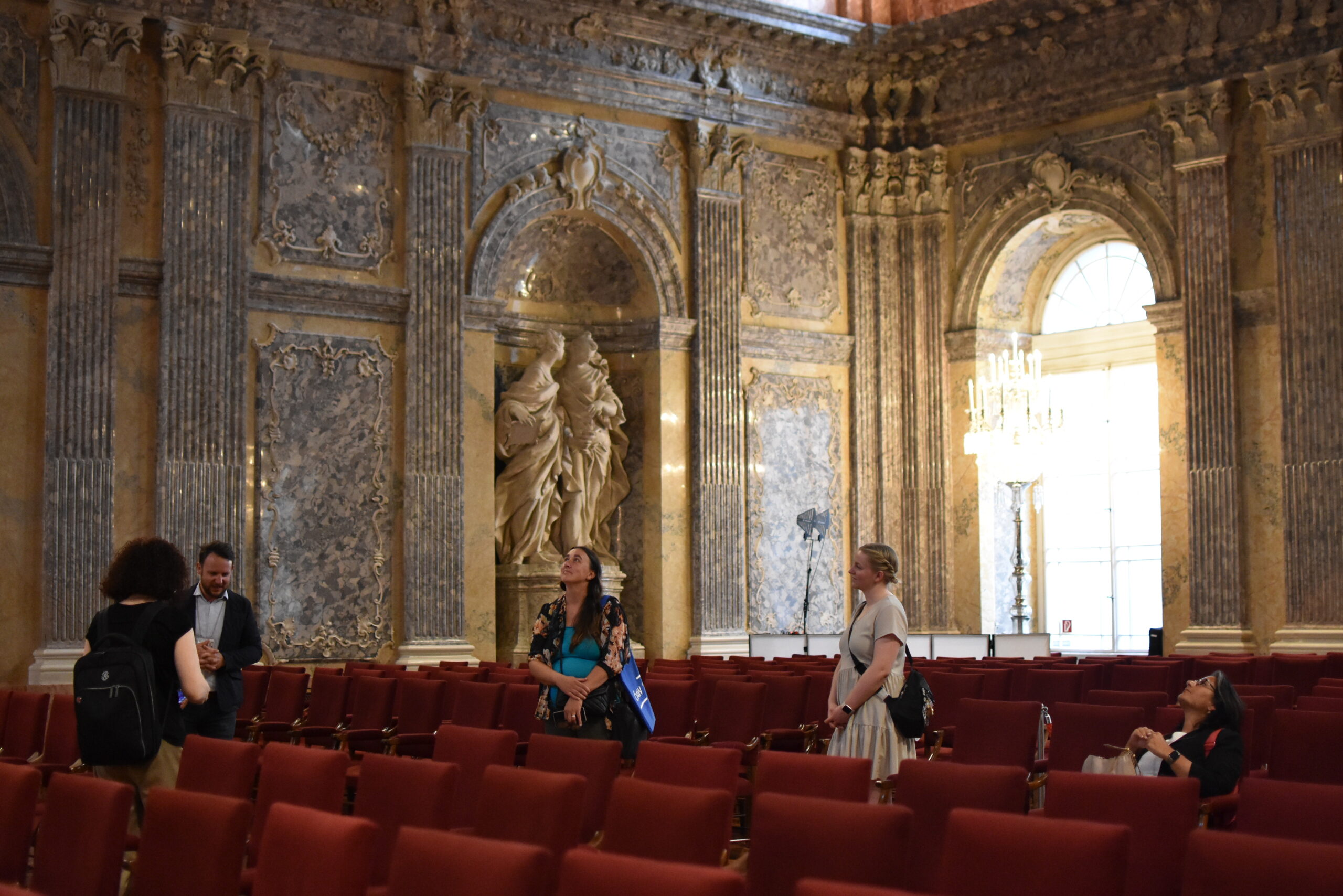
Photos by Karin Pai
RET visit at Tartu Observatory (link) / 08.-09.05.2023
During the two-day visit Tartu Observatory welcomed our project partners from Uppsala University and Space Research Institute of the Austrian Academy of Sciences. The purpose of the RET (Research Evaluation Team) visit was to monitor the research activities and have interviews with all University of Tartu participants to determine the research culture and specific practices, hopes and expectations and identify (non-)perceived barriers and practices or skills to target for improvement. Examples of topics the RET will aim to understand are: what is the knowledge context and process of arriving at research questions to focus on; what is the approach to writing and publishing research papers; what are the practises and obstacles of continued learning (following the literature, learning new methods/tools/context).
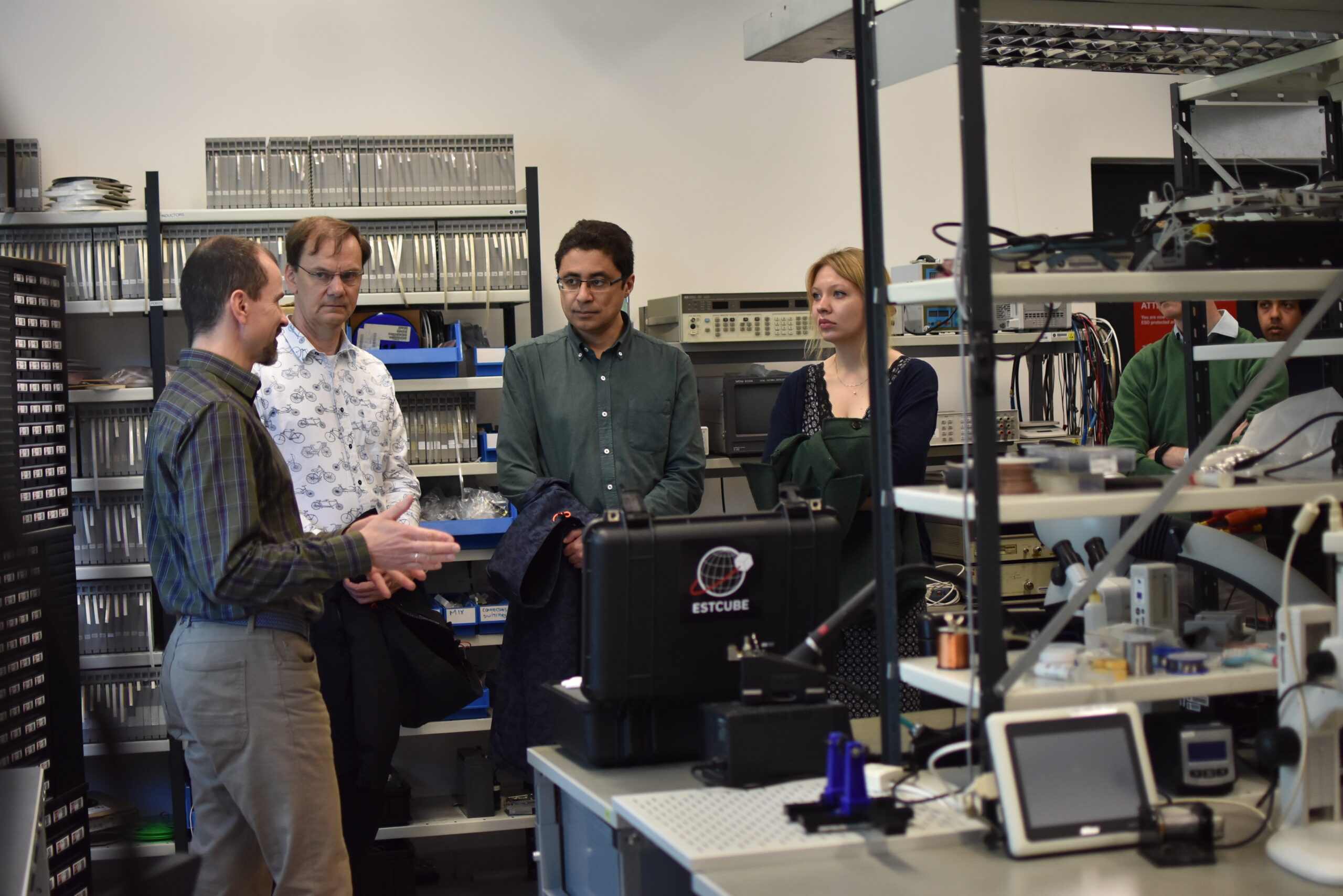
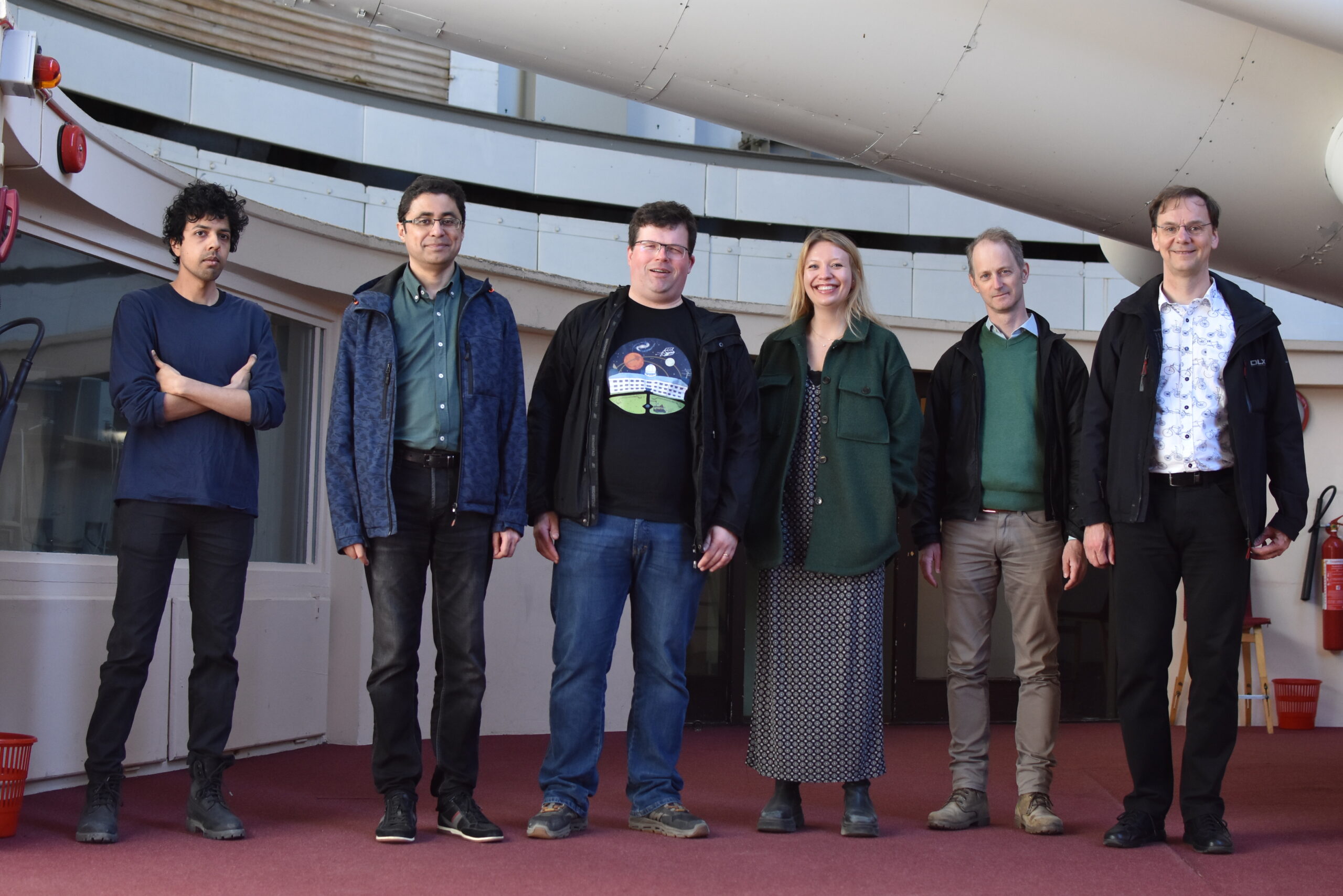
Photos by Karin Pai
Laurits Leedjärv at Twinning conference (link) / 26.04.2023
Leaders of recent successful Twinning projects from 15 different research fields in Estonia gathered at a conference to introduce their projects and show how the projects have benefited from collaborating with the best in their research field. The conference is also a place where project implementers can exchange experience, but also inspire and encourage new applicants.
EXOHOST WP5 lead Laurits Leedjärv introduced aims and gained experience in the project.
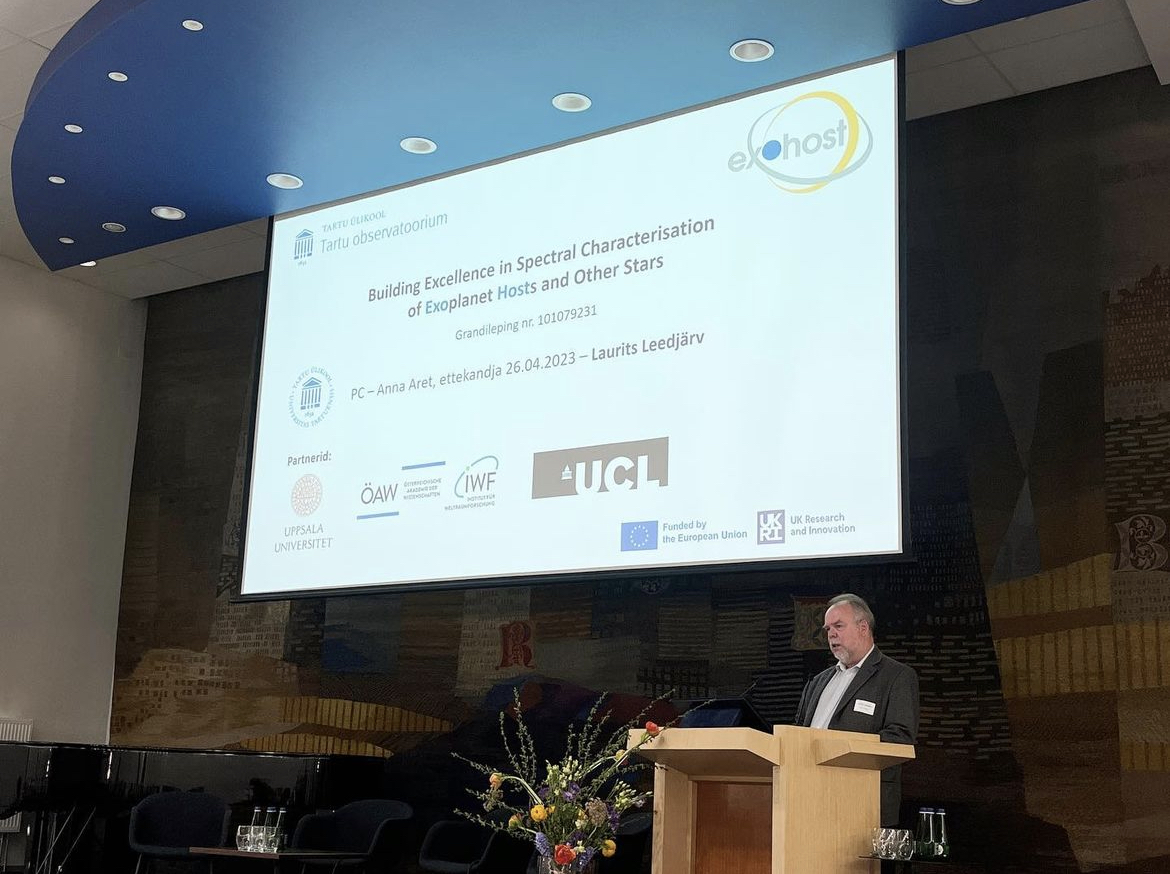
School visit: Heleri Ramler at Rannu School science day (link) / 24.03.2023
March 24th was science day at Rannu school. Many engaging activities related to space were conducted throughout the day. The star of the day was Heleri Ramler from Tartu Observatory, who gave a talk about her journey to becoming an astronomer, dark matter and exoplanets.
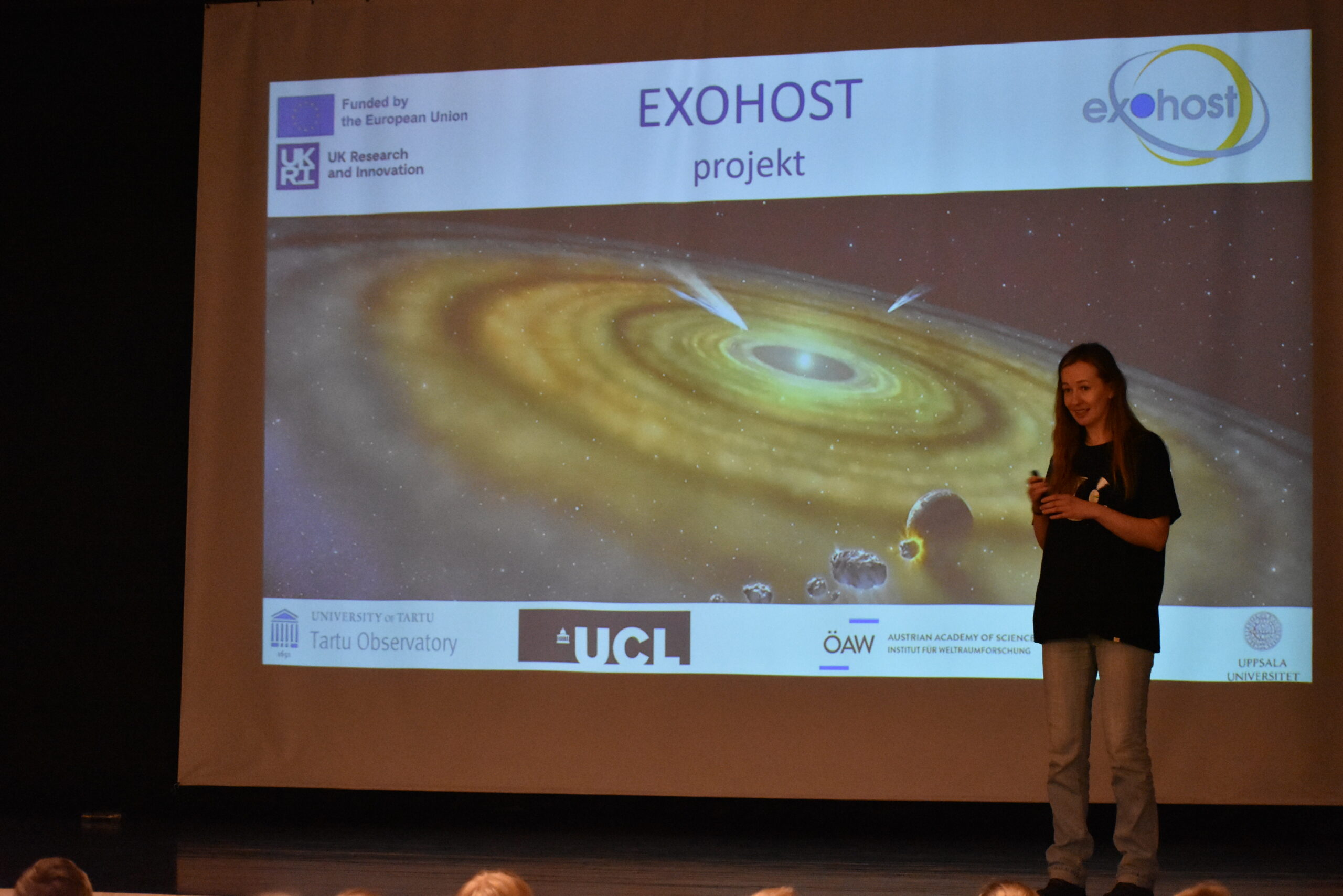
Radio show Labor: Laurits Leedjärv about EXOHOST in Estonian (link) / 05.03.2023
Laurits Leedjärv talks about studying exoplanets and their host stars, the new field of interest and activity of astronomers in Tartu Observatory. Alongside the excitement of distant planets themselves, it is also important to know their stars.
Tartu Observatory’s stellar physicists take Estonia to a level of excellence in exoplanetary star research (link) / 21.02.2023
The kick-off meeting of the EXOHOST Twinning project took place in Tõravere on 14-15 February. Tartu Observatory of the University of Tartu, the leader of the consortium, hosted project partners from Sweden, Austria, and England. During the two days, participants determined the objectives of the project and agreed on the next steps.
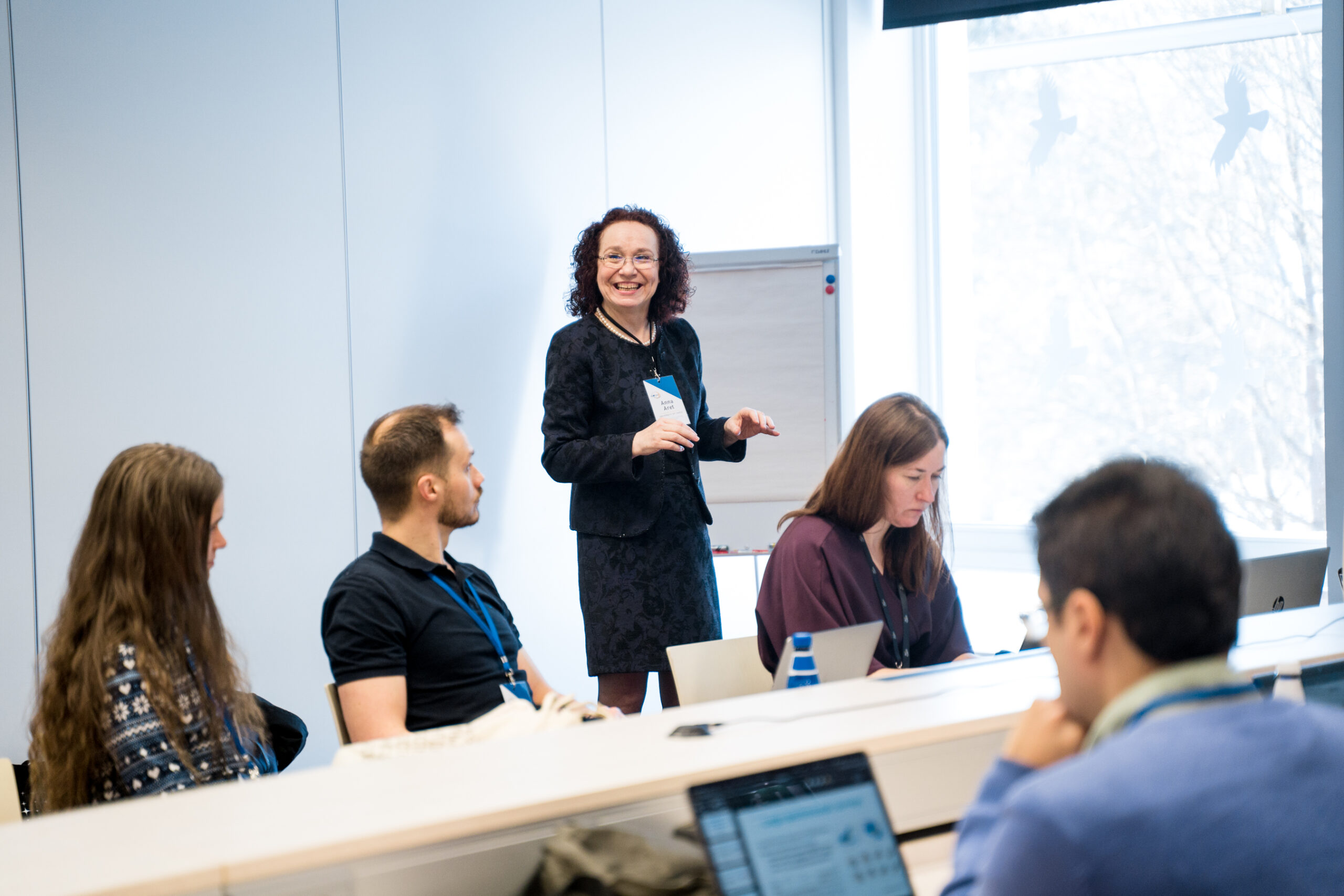
This stellar physics project will focus on planetary systems around other stars – exoplanets, and on characterising stars with protoplanetary disks. “Exoplanets are being discovered all the time,” said Mihkel Kama in his presentation, “so, at the moment, the main focus is on exoplanets, and the properties of host stars are taking a back seat.” However, the spectroscopy of host stars is crucial for the discovery and in-depth study of exoplanets, including understanding the chemical diversity of exoplanets and the processes that lead to the formation of star–planet systems.
The EXOHOST project aims to increase the international visibility of the University of Tartu and that it becomes an independent Eastern European leader in the characterisation of exoplanetary parent stars. To this end, Tartu Observatory will not only acquire modern research methods and tools but will also learn about modern management culture and research practices.
In turn, the project partners will gain access to the telescopes of Tartu Observatory. The teams from the partner institutions will have the opportunity to strengthen their links with each other, to carry out cross-training, and to conduct joint research. The plan is to organise lecture series, seminars, one-to-one or small group trainings, and research meetings.
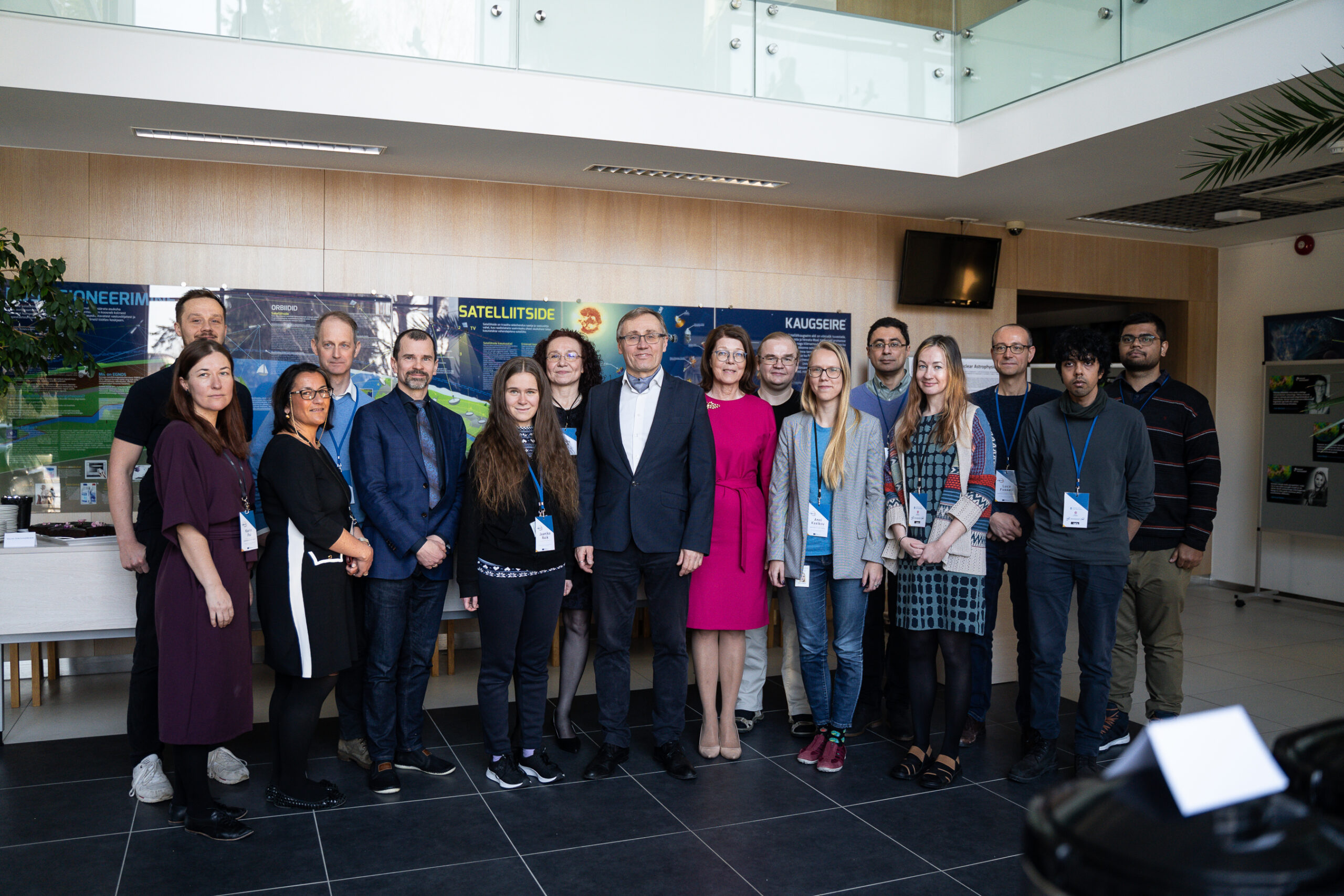 EXOHOST will run until the end of 2025 with a budget of €1.5 million. The project is funded by the European Commission Horizon Europe Programme with the support of UK Research and Innovation. The University of Tartu’s partners within EXOHOST are University College London, Uppsala University, and the Austrian Academy of Sciences.
EXOHOST will run until the end of 2025 with a budget of €1.5 million. The project is funded by the European Commission Horizon Europe Programme with the support of UK Research and Innovation. The University of Tartu’s partners within EXOHOST are University College London, Uppsala University, and the Austrian Academy of Sciences.
Photos by Marja-Liisa Plats

